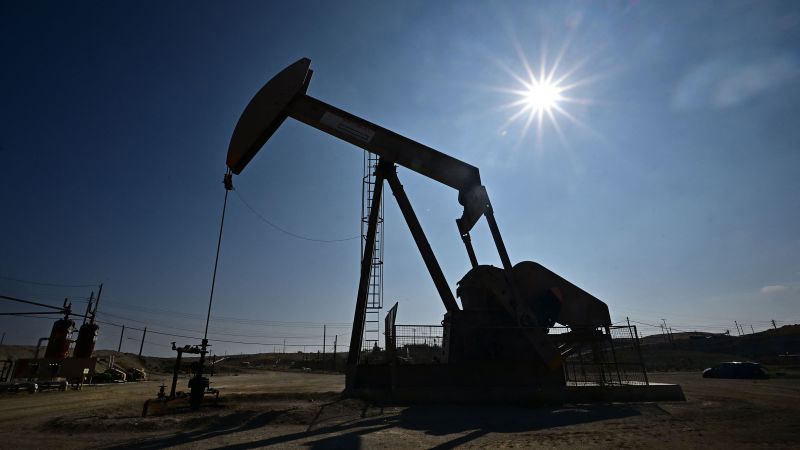Oil prices surged on Friday amid reports of explosions near the Iranian city of Isfahan, causing global investors to worry about escalating conflict in the Middle East. US crude futures jumped 2.1% to $84.5 per barrel, while Brent crude, the global oil benchmark, rose 2%. Israel reportedly carried out a strike inside Iran, with the Israeli military declining to comment on the reports of explosions. Prime Minister Benjamin Netanyahu stated that Israel will make its own decisions in response to Iran’s recent airstrikes launched in retaliation for a suspected Israeli strike in Syria.
Analysts from ANZ noted that the market has been on edge since Iran’s missile and drone attack on Israel, with concerns over potential threats to oil supplies depending on Israel’s response. Additionally, ongoing oil disruptions remain high, further impacting global oil markets. The US has announced plans to reinstate sanctions on Venezuela’s oil industry, potentially disrupting its exports. Mexico has also reduced exports due to strong domestic demand, adding to market uncertainties.
Gold prices saw an increase as traders turned to safe-haven assets, with futures briefly reaching $2,422.4 per ounce during Asian trading hours. On the other hand, the price of bitcoin dropped below $60,000 as investors turned away from risky assets. Despite some recovery to trade at $62,406 by Friday noon, bitcoin remained down 2% from the previous session. Stock markets in Asia experienced declines, with Japan’s Nikkei 225, South Korea’s Kospi, Hong Kong’s Hang Seng Index, and China’s Shanghai Composite all posting losses.
Despite the overall market decline, shares of oil suppliers saw gains in Asian markets. In Hong Kong, PetroChina, CNOOC, and Sinopec all saw increases in their stock prices. In Tokyo, refiner Cosmo Energy and energy giant Eneos Corp also saw gains, while in Seoul, S-Oil Corp experienced a rise in its share price. These fluctuations in the stock market reflect the impact of geopolitical tensions on oil prices and the broader financial market, with investors seeking safe-haven assets amid escalating conflict in the Middle East.
Overall, the surge in oil prices, combined with concerns over geopolitical tensions in the Middle East, has led to increased market volatility and uncertainty. The impact on various sectors, such as oil supply disruptions and changes in investor behavior towards safe-haven assets like gold, has contributed to the fluctuations in global markets. As the situation continues to evolve, investors will closely monitor developments in the Middle East and their implications for the oil market and overall financial stability.













